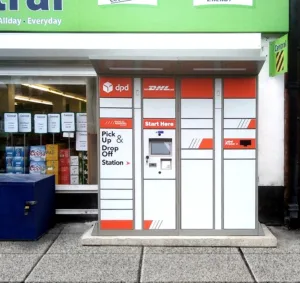By Tony Preedy, Managing Director of Fruugo
Few industry sectors have been as disrupted by the Covid-19 lockdown as retail. The global pandemic has above all shown the industry how vital it is to grow retail businesses with a dynamic mix between physical and digital, with flexibility for all circumstances and protection against risks built into their model.
Fundamentally, using multiple sales channels is a strategic move that spreads risk. However, it’s not enough in this age of uncertainty to merely have a strong digital offering. Diversification goes for ecommerce itself too. For example, online marketplaces – especially ones catering to cross-border trade – can be used along with owned ecommerce portals. In fact, while sales on retailer’s own websites are expected to rise by 10% each year, marketplaces are growing by 16.5%, and by 2026, more than two-thirds of all online shopping revenue will be generated through marketplaces. If one starts to go down, you can ensure there are other channels to rely on.
Retailers that expand their ecommerce offerings can be certain to maximise sales in both the short- and long-term. Yet there are other advantages of diversification that benefit sellers’ businesses long term.
De-risking the future
- Expand customer categories
Traditionally, retailers have a core set of customers who are exposed to their products and who ultimately purchase. However, with the advent of ecommerce marketplaces, sellers no longer need to focus or rely on a certain kind of customer for revenue as categories of customers who buy your products open up, and the actual number of consumers who might get exposed to your company increases drastically. This would inherently lead to increased sales and profitability, but would also mean less reliance on a particular type of customer for revenue, which is better for long-term business outlook.
- Protect against uncertainties
Over the past year alone, retailers across the globe have experienced lockdown along with the supply chain shortages and the recessions due to the ongoing pandemic. The UK has also had to grapple with the end of the Brexit transition agreement looming, and the challenges it places on the supply chain. It may sound too good to be true, but these hurdles to revenue streams would be far easier to overcome if sellers have a broad scope internationally through which they are selling to. Of course, there are particular regulations and nuances to overcome for each individual market, but with the right platforms and tools, this can be easily automated.
Maximising resources
- Trade risk-free
Many marketplaces only require a fee once they deliver a customer and a sale to the retailer, helping retailers maintain sales throughout crises. For smaller sellers especially, expanding online can be a very tall order as it requires resources and tools many do not have to deal with the complexities of ecommerce. For them, marketplaces are a saviour as they can take on a lot of the logistical work and help optimise marketing. As such, the role played by marketplaces in helping retailers maintain sales throughout times of crisis cannot be overlooked, and has cemented their place in the ecommerce landscape over time.
- Dive into data
A key benefit of ecommerce diversification beyond sales is that many ecommerce platforms offer ways to better understand and use data. This covers everything from product data, which can provide inventory and supply chain efficiencies, through to larger and more detailed customer data, making it much easier to implement effective marketing campaigns. This can be best seen through better targeting, making it much more efficient to reach the right customers within a broader, more diversified range of potential buyers.
If the past year has taught the retail industry anything, it is that all retailers must not only continue to digitise, they also must not limit their opportunities and start looking to international sales as a simple means of growth. With online retailing unlikely to significantly retract anytime soon, those with the contingencies in place and the agility built in to adapt to any changes in consumer demands and economic outlook will stay standing and even grow. It is certainly the clearest way forward to ensuring lasting success in an industry that will see continued change and uncertainty for years to come.







